Food & Wellness
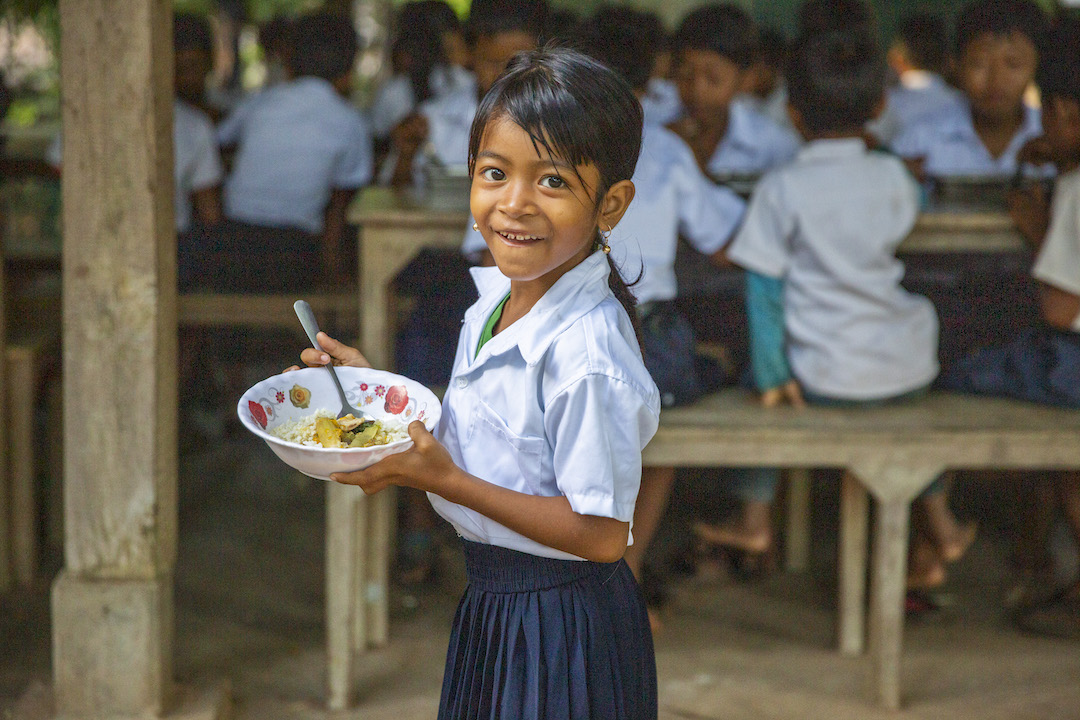
Breakfast
Three of the schools we support currently receive monthly food rations of rice, oil, salt, and canned fish from the World Food Program. While the food allocated through this program is a start to establishing a nutritional standard of health and well-being for our students, the ration is a “starvation ration” not a “nutrition ration.” In effect, these rations do not provide enough meat and vegetables to keep students well or establish a strong and healthy base for their growing bodies. Many of the children at these three schools are malnourished and do not have enough food at home, thus spending a great deal of their time foraging for food on their own or working instead of receiving an education. As a result, when they do attend school, they have serious attention and energy deficits which impede their learning.
To combat this issue, we provide meat and vegetables to supplement all three food programs and provide a substantial and nutritious breakfast every morning before school. The commitment to a provision of meat and vegetables translates immediately into improved wellness, with less medicine expense, fewer trips to the hospital, etc and attendance at school skyrockets. Simply put, full tummies means healthier and happier students.
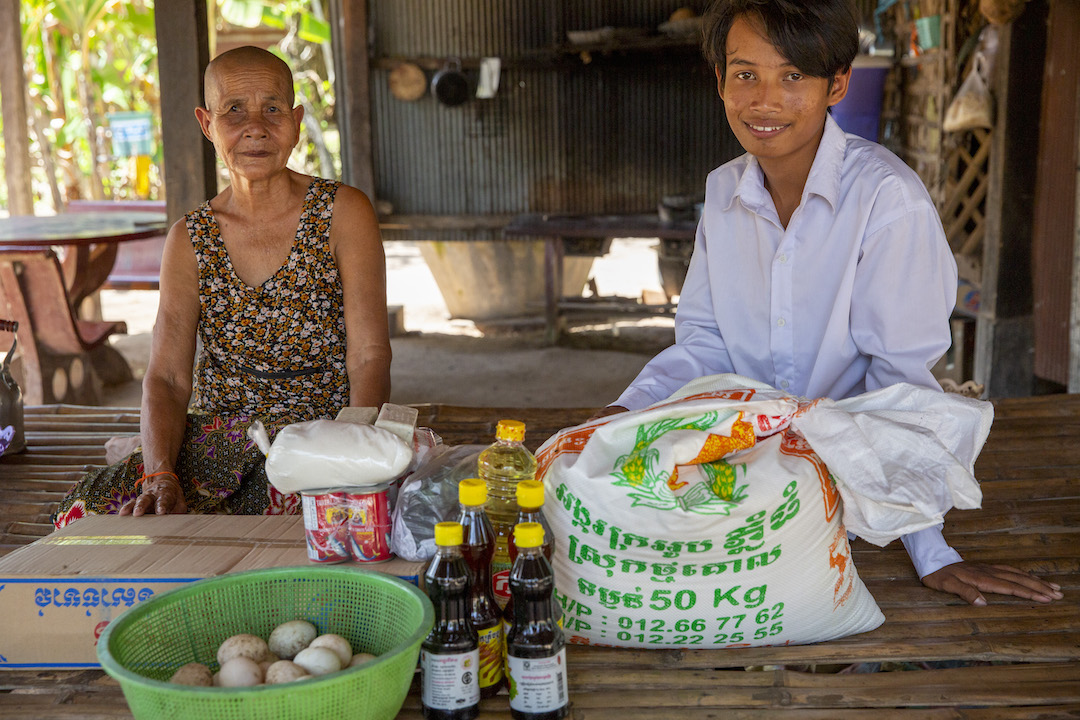
Food Banks
Around 2017, we started noticing some of the most fragile members of the community at Knar were going across the border to work in Thailand illegally. This would involve the parents being away for months on end and usually leaving their children in the care of an elderly grandma: the children could not take care of her, and she could not take care of them. This is the perfect storm in which children can be trafficked, sold off to dodgy orphanages, or at the very least, be removed from school and put to labor. In an effort to prevent those things from happening and ease the suffering of these families, we put in a Food Bank in the village to replace the “income” that a working 10-year-old might bring into the family – putting forth food in exchange for school attendance. The program has brought good results and kept scores of children in school.
This food relief also extends to the city as part of our urban wellness program, offering assistance to PLF Scholarship students who often have to sacrifice school attendance for manual labor.
Starting in 2021, PLF is in collaboration with Treeline Urban Resort to provide food bank relief to 81 families living in the outskirts of Siem Reap. Using the same protocols as at Knar, school-age children are being enrolled in school in exchange for food relief.
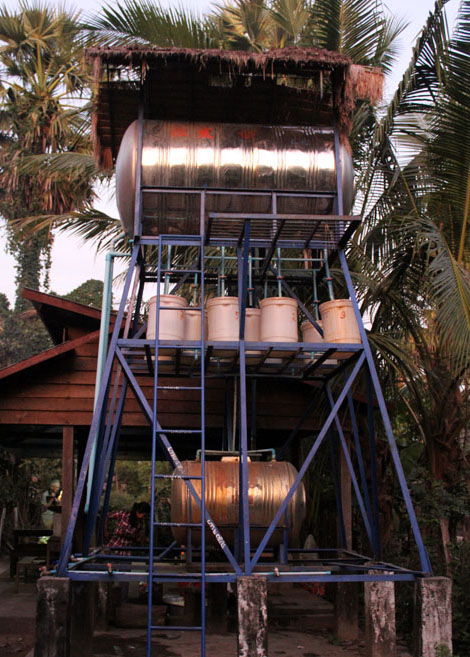
Clean Water
We have major clean water actions in place at 4 rural schools we are supporting. Much of the groundwater in Cambodia is contaminated with E-Coli even as much as 20 meters deep, but fortunately the process of purifying this water is relatively simple. Each morning the teachers pump water up to a holding tank and then it is fed by gravity into ceramic filters which remove the E-Coli and any other organic contaminants such as viruses, bacteria, and sediment. The water filters through into a drinking tank for students and teachers to drink at school or bring home to support their families.
We encourage any member of the community to take clean water from school, as many Cambodians living in the countryside do not have access to such filters at their homes. We frequently see parents coming to school to haul home clean water and bathe young children, and this positive relationship helps to build interest and support from elder members in the village who might otherwise see no reason to show up to school.
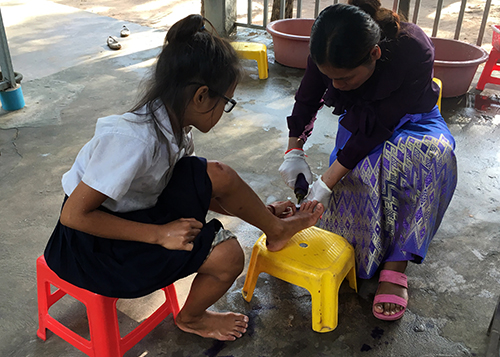
Health
We have a trained school nurse at each school supported by PLF to provide basic first aid and prevent against infections and viruses. These nurses have been trained by medical professionals who have volunteered with PLF and provided various medical supplies for basic first aid. We keep a full stock of first aid supplies ranging from bandages, eye drops, gentian violet and paracetamol to soap, brushes, toothbrushes and toothpaste in order to keep students clean and healthy. When the school nurse finds students with serious ailments, they are taken to the Children’s Hospital for treatment and followup.
All students living in our residential programs receive medical checkups and standard vaccinations, and we coordinate with existing government programs to hold de-worming childhood vaccination clinics at all of the schools we support.
Because of the implementation of these basic wellness programs, we have seen a significant decrease in infections from minor cuts and bruises. PLF students come to school cleaner and with a basic knowledge of how to keep themselves healthy.
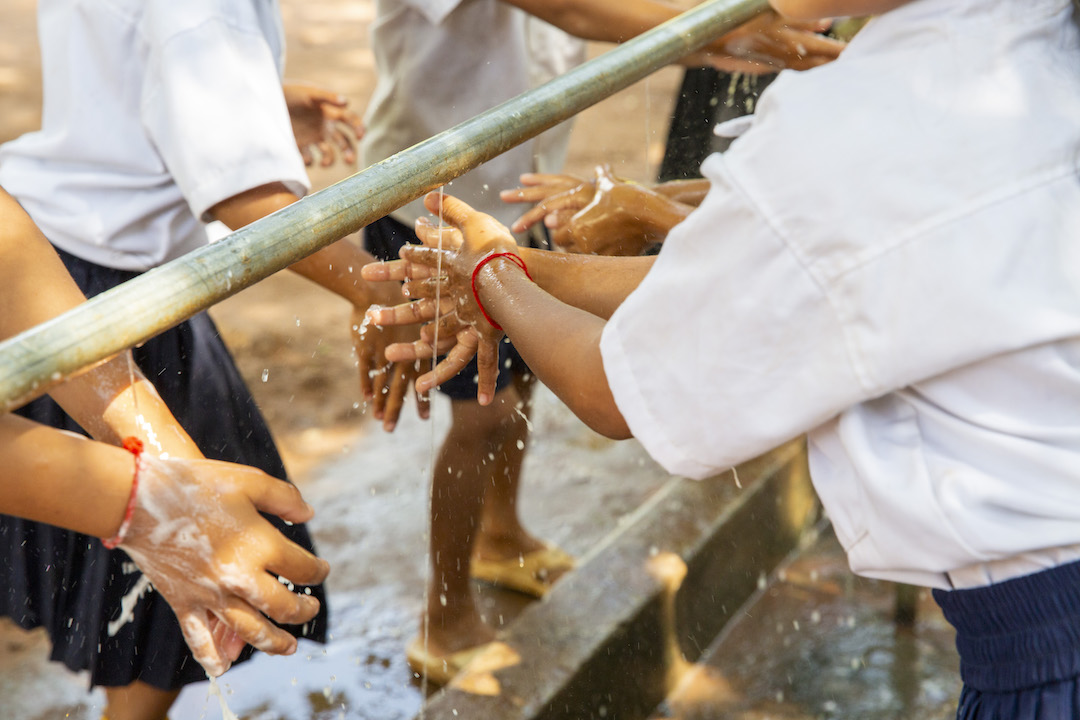
Sanitation
Installing proper sanitation facilities at the schools we support is especially important in a country where fewer than 1 in 3 Cambodians have access to bathrooms and handwashing facilities. However, sanitation is not only about having toilets at school but educating our students on the importance of using them. As you can imagine, the lack of access to sanitation facilities lays the groundwork for poor water quality and health in the countryside. Through workshops, lessons, and constant teacher support we work to build an understanding of how proper sanitation practices positively impact the community. Want to learn more? Check out this video made by one of our students about the lack of toilets in his village.
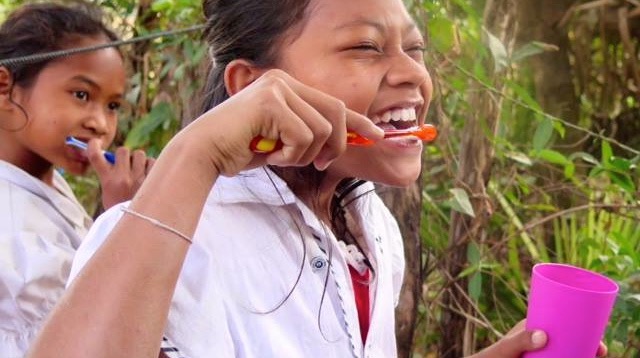
Hygiene
Forming proper personal hygiene routines at a young age is a critical. Students arrive at school and wash their hands, brush their teeth after eating breakfast, and scrub fertilizer and other dirt off their legs from the walk to school.
Why toothbrushing at school? Roughly one third of the population in Cambodia has Hepatitis B, a virus which can live without a host source for up to two weeks. Toothbrushing at home means a shared toothbrush with the high risk of spreading disease, toothbrushing at school means a daily routine after breakfast that our teachers can oversee.
